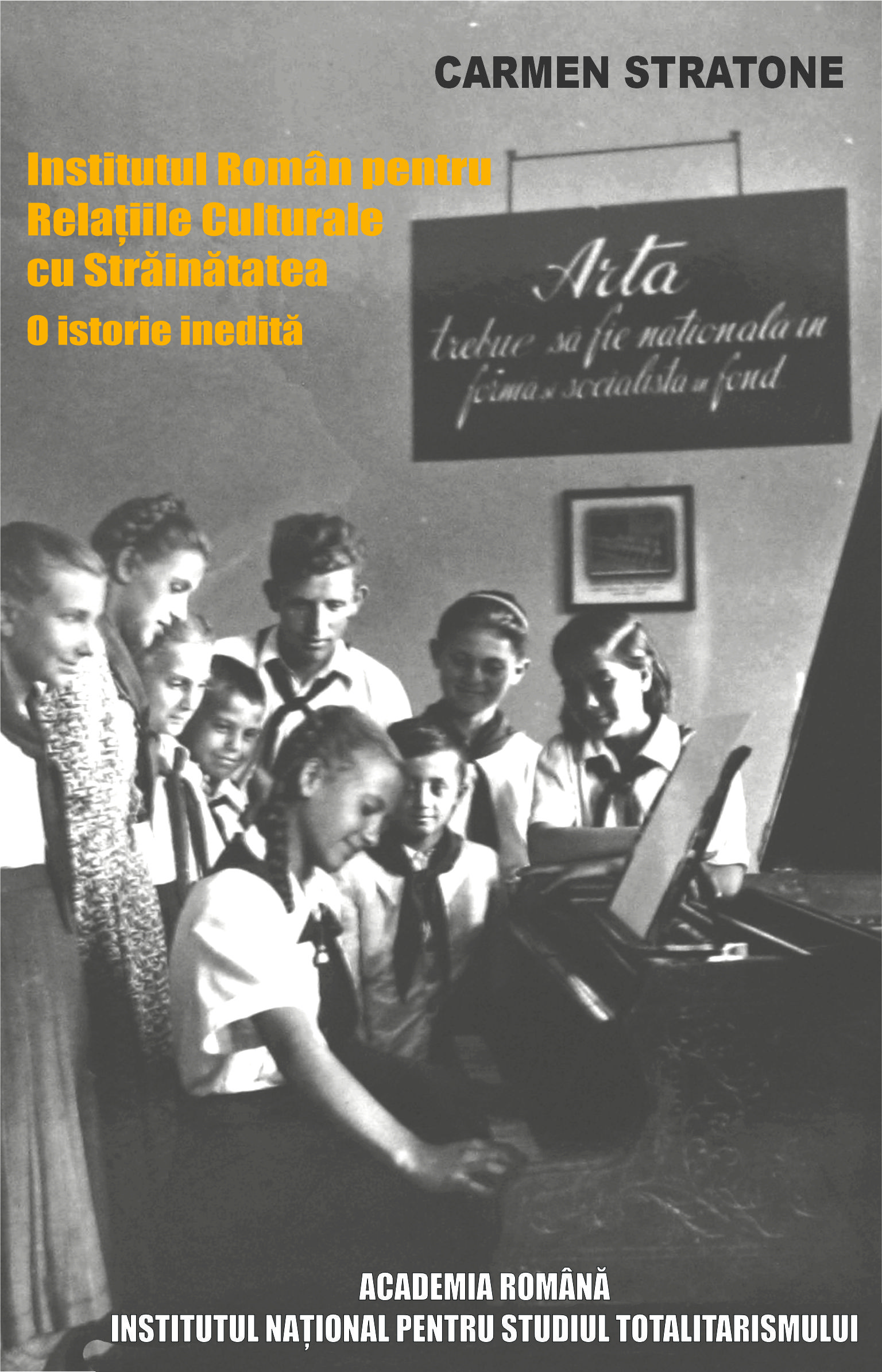Propagandă şi diplomaţie culturală în perioada comunistă. Institutul Român pentru Relaţiile Culturale cu Străinătatea - o istorie inedită
Propaganda and Cultural Diplomacy in the Communist Period. The Romanian Institute for the Cultural Relations Abroad – An Unknown History
Author(s): Carmen Stratone
Subject(s): Cultural history, Political Sciences, Diplomatic history, History of ideas, Political history, Social history, Recent History (1900 till today), History of Communism, Cold-War History
Published by: Institutul National pentru Studiul Totalitarismului
Keywords: Political Sciences; History; Social Sciences; Cultural Diplomacy; Romania; Romanian Communism; Communism
Summary/Abstract: This volume fits into the large field of cultural history, but addresses a new theme: cultural propaganda abroad. It is the first monographic investigation on an institution – The Romanian Institute for the Cultural Relations Abroad (IRRCS, in Romanian) – to which the communist authorities assigned the special role of promoting Romanian cultural values abroad, officially accepted at that time. The task undertaken by the author, in the form of research for a doctoral thesis, was much more difficult than others of the same nature, since, in addition to the political-ideological documents identified in the funds from the Central Committee archive of the Romanian Communist Party hosted by the National Archives of Romania, she had to insist long to receive access to the IRRCS Archive, which is under the administration of the Romanian Cultural Institute, the patrimonial heir of the former institution. Even not organized for research, this archive had in its composition the documents of a technical-administrative nature of the IRRCS, without which the work of the institution could not be fully understood. Established in 1948, with the main purpose of popularizing abroad the “cultural, economic and social achievements” of the communist regime, IRRCS has a history that closely follows the stages of evolution of the political regime, from the incessant Stalinism of the period of “Popular Democracy”, to the opening to the West in the 1960ʼs-1970ʼs, to finally pass through external isolation, followed by the collapse of the late 1980ʼs. But beyond the political-ideological framework in which he had to evolve and which is abundantly emphasized in the book, IRRCS also had his own life, more or less autonomous. The personalities who were involved in the projects carried out through the Institute (writers, dramatic artists, painters, sculptors, musicians, etc.) used the opportunity offered by the regime to visit other countries, to get to know and exchange ideas with personalities of world culture, but also for their works, through translations, exhibitions, artistic performances, to reach the public in either capitalist or “brotherly” countries. The Romanian public also benefited, as long as most of the projects were agreed on a reciprocal basis. This is an invitation to understand the complicated mechanism of foreign cultural propaganda from the communist period. Through the transformations to which it was subjected over the years, by the type of personalities appointed at the head of the institution, through the theme promoted and through the evolution of the budget and the number of employees, the evolution of the IRRCS is also a small-scale history of the communist period in Romania.
- E-ISBN-10: 978-606-9053-
- Print-ISBN-13: 978-606-9053-16-4
- Page Count: 280
- Publication Year: 2023
- Language: Romanian
- eBook-PDF
- Table of Content
- Introduction
- Sample-PDF

